QuestionOur 11 yr old American Eskimo developed a trash habit last year. The moment we left, he'd run to the pantry and knock over the trash can. We started closing the pantry and he started chewing other things instead, mainly anything paper. He particularly went after used napkins, toilet paper, or tissues. He eventually started shredding any soft paper, used or not. He holds it down with his front paws then tears it off in strips with his mouth. We've started locking up the napkins and paper towels and he chewed through a whole huge box of tissues to shred them.
We're home almost all the time and he gets decent attention, especially from our daughter. He will not go outside longer than it takes for him to urinate and sometimes won't even wait that long. He's been that way since we got him at 3, but it is far worse now. He has plenty of chew toys of differing materials which he used to enjoy but he now shows zero interest in them.
In the last month, he's started chewing anything leather. He went through a play drum, my shoes, and most recently pulled a huge book off the book shelf to chew it up while we were at the grocery store.
Today I found a Barbie doll amputee even though we were home and he had plenty of petting time. I'm so fed up! Is there anything we can do besides keeping him in eye sight or locked in the laundry room? If we lock him up, he just whines and whines and whines for hours. I don't know what to do! Advice?
AnswerElaina,
Any problem which seems to be behavioral can also have roots in a medical condition. Just off the top of my head, hypothyroidism can cause seemingly "sudden" changes in behavior. But also some malabsorption/maldigestion problems in the gut can cause chewing and eating problems. The first step is to take your dog to a veterinarian to have a complete physical examination and probably some bloodwork to try and rule out a medical condition.
Notice I said try to rule out... We are limited in our diagnostic skills by the "clues" we get from the behavior, eating/drinking habits, attitude, bloodwork results and physical exam findings. There are quite a few diseases out there that are very very difficult to diagnose. And with patients who can not tell us why they are doing what they are doing, we sometimes get stumped.
Having said that, this also could be a behavior problem alone. But again, he is not saying what he is feeling so we have to again look for "clues" as to what is going on. A good veterinarian should also be able to help you with behavior issues. There are also veterinarians who have board certification in behavior problems. You can use this link to find a specialist in veterinary behavior in your area http://www.avsabonline.org/avsabonline/index.php?option=com_content&task=view&id...
Lastly, the chewing behavior can work to your advantage.... My dog chews every toy in sight and it's taught my kids a valuable lesson on how to put away their belongings if they want to keep them ;-)

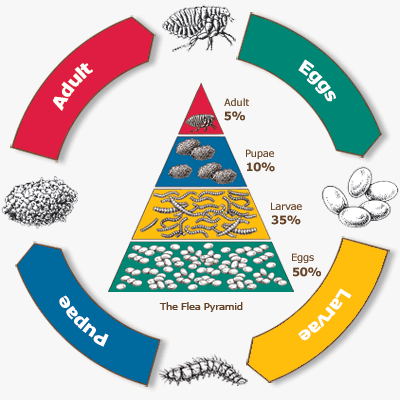 flaky skin and excessive shedding
QuestionQUESTION: Hello! Thank you for reading my quest
flaky skin and excessive shedding
QuestionQUESTION: Hello! Thank you for reading my quest
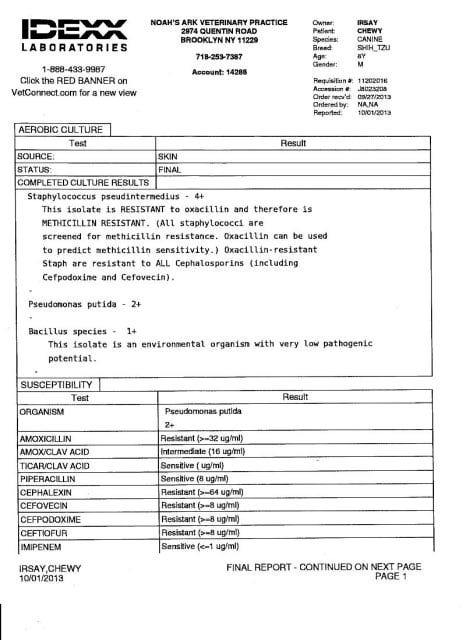 Ciprofloxacin
Question
Skin Culture Report Culture Report Page
Ciprofloxacin
Question
Skin Culture Report Culture Report Page
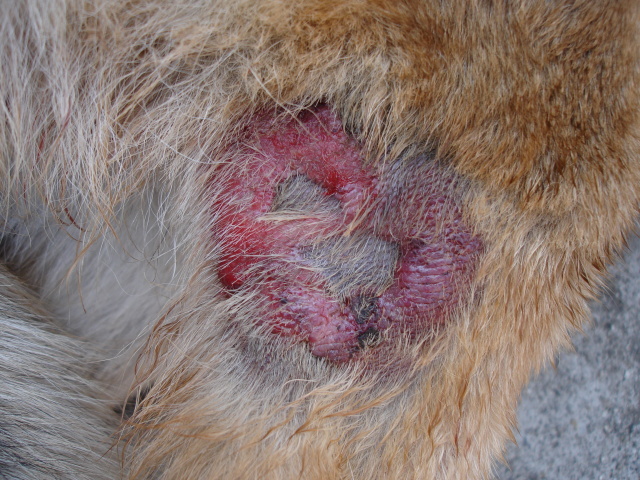 Infection in German Shepherd
Question
Infection 1
My German Shepherd named Lucy is s
Infection in German Shepherd
Question
Infection 1
My German Shepherd named Lucy is s
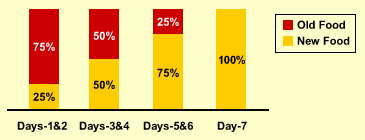 5 year old Chihuahua suddently farting a lot
QuestionQUESTION: Hi,
My question is about my 5-year o
5 year old Chihuahua suddently farting a lot
QuestionQUESTION: Hi,
My question is about my 5-year o
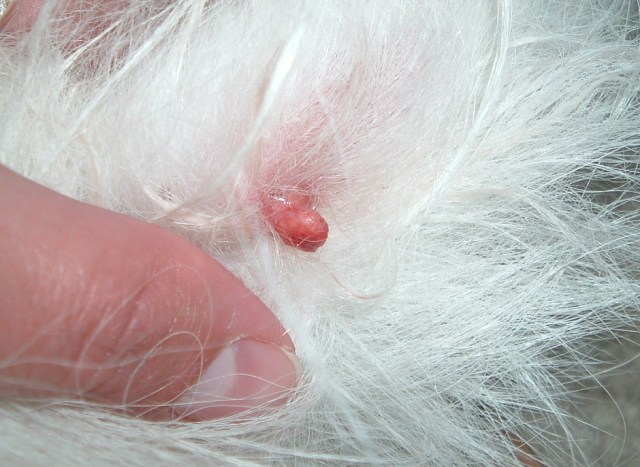 American Eskimo skin growth
Question
Buddy
We have a 9-11 Year old American Eskimo.
American Eskimo skin growth
Question
Buddy
We have a 9-11 Year old American Eskimo.